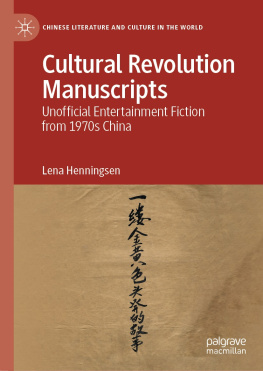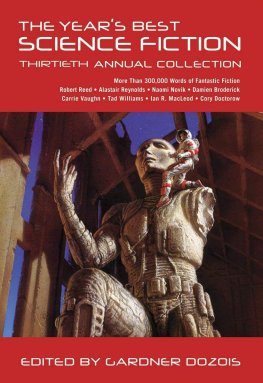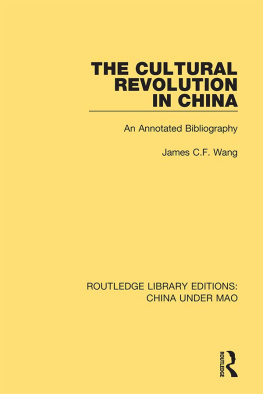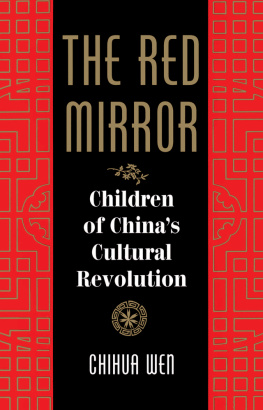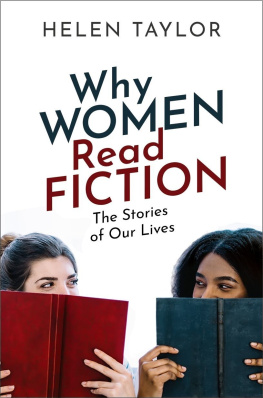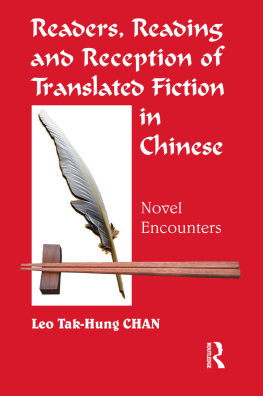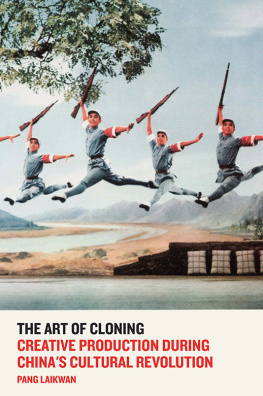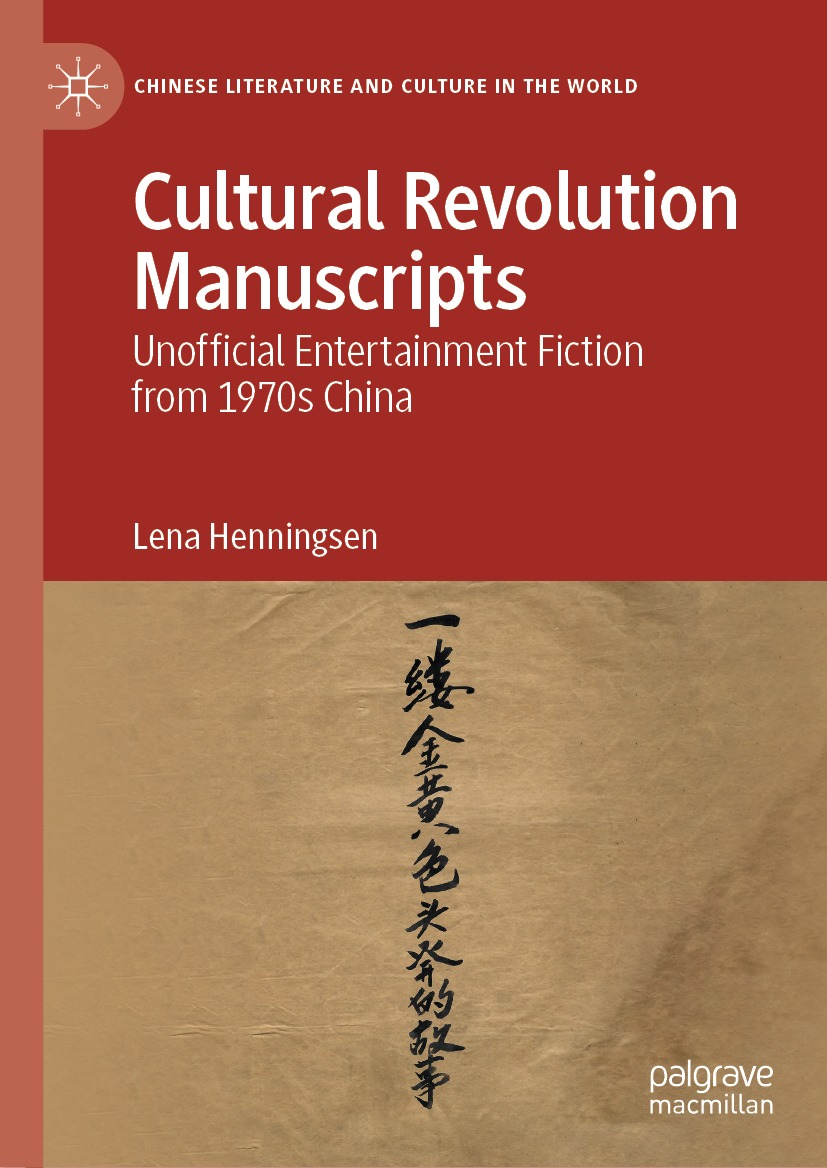Chinese Literature and Culture in the World
Series Editor
Ban Wang
Stanford University, Stanford, CA, USA
As China is becoming an important player on the world stage, Chinese literature is poised to change and reshape the overlapping, shared cultural landscapes in the world. This series publishes books that reconsider Chinese literature, culture, criticism, and aesthetics in national and international contexts. While seeking studies that place China in geopolitical tensions and historical barriers among nations, we encourage projects that engage in empathetic and learning dialogue with other national traditions. Imbued with a desire for mutual relevance and sympathy, this dialogue aspires to a modest prospect of world culture. We seek theoretically informed studies of Chinese literature, classical and modern - works capable of rendering China's classical heritage and modern accomplishments into a significant part of world culture. We promote works that cut across the modern and tradition divide and challenge the inequality and unevenness of the modern world by critiquing modernity. We look for projects that bring classical aesthetic notions to new interpretations of modern critical theory and its practice. We welcome works that register and analyze the vibrant contemporary scenes in the online forum, public sphere, and media. We encourage comparative studies that account for mutual parallels, contacts, influences, and inspirations.
More information about this series at http://www.palgrave.com/gp/series/14891
Lena Henningsen
Institute of Chinese Studies, University of Freiburg, Freiburg, Baden-Wrttemberg, Germany
Chinese Literature and Culture in the World
ISBN 978-3-030-73382-7 e-ISBN 978-3-030-73383-4
https://doi.org/10.1007/978-3-030-73383-4
The Editor(s) (if applicable) and The Author(s), under exclusive license to Springer Nature Switzerland AG 2021
Chapter 5 is licensed under the terms of the Creative Commons Attribution 4.0 International License (http://creativecommons.org/licenses/by/4.0/). For further details see license information in the chapter.
This work is subject to copyright. All rights are solely and exclusively licensed by the Publisher, whether the whole or part of the material is concerned, specifically the rights of translation, reprinting, reuse of illustrations, recitation, broadcasting, reproduction on microfilms or in any other physical way, and transmission or information storage and retrieval, electronic adaptation, computer software, or by similar or dissimilar methodology now known or hereafter developed.
The use of general descriptive names, registered names, trademarks, service marks, etc. in this publication does not imply, even in the absence of a specific statement, that such names are exempt from the relevant protective laws and regulations and therefore free for general use.
The publisher, the authors and the editors are safe to assume that the advice and information in this book are believed to be true and accurate at the date of publication. Neither the publisher nor the authors or the editors give a warranty, expressed or implied, with respect to the material contained herein or for any errors or omissions that may have been made. The publisher remains neutral with regard to jurisdictional claims in published maps and institutional affiliations.
Cover credit: Lena Henningsen
This Palgrave Macmillan imprint is published by the registered company Springer Nature Switzerland AG
The registered company address is: Gewerbestrasse 11, 6330 Cham, Switzerland
Acknowledgments
This book is about texts in motion, about manuscripts that travel across space, time and medium as they are handed from person to person. I argue that the particular contexts and conditions of these journeys impact on the material shape of distinct texts and, consequently, on their content, form and style. In similar ways, this book also came into existence through the inspiring intellectual journey(s) that I undertook during the past years. On these journeys, I took along my texts and ideas and shared them with patient friends and colleagues. This impacted significantly on the shape and contents that the book now ended up with. I am indebted to all my fellow travelers who made this undertaking tremendously enjoyable.
Over the past years, Jennifer Altehenger, Shuyu Kong, Barbara Mittler, Stephan Packard and Nicolai Volland have read and commented on earlier versions of several of my chapters. In addition, the wonderful READCHINA teamDamian Mandzunowski, Eve Yi Lin, Duncan Paterson and Lara Yuyu Yangsubjected the first full draft of the manuscript to a thorough and critical reading. Lastly, the anonymous reviewer of this book provided me useful comments to clarify my points. I thank all of them for helping me clarify, refine and rethink my ideas.
Freiburg proved to be an ideal base camp for my journey thanks to the very amicable and cooperative climate at the institute and thanks to the many academic events and good food we share. I have benefitted immensely from exchanges with colleagues and students alike. In addition to the READCHINA team, I would like to thank Puck Engman, Elisabeth Forster, Lanfen Guo, Lynn Kalic, Sara Landa, Daniel Leese, Elisabeth Schleep, Oliver Schulz, Amanda Shuman, Nicola Spakowski, Ren Trappel, Tobias Voss, Bailu Wang and Zhang Man.
From 2013 to 2018, when I was doing most of the research for this book, I was fortunate to be a member of the German Young Academy. I benefitted tremendously from discussions with my fellow membersin particular Anna Ahlers, Miriam Akkermann, Caspar Battegay, Sibylle Baumbach, Kirill Dmitriev, Katharina Heyden, Gordon Kampe, Henrike Manuwald, Evelyn Runge and Kai Wiegandtand from the opportunity to organize a conference on reception and authorship in popular cultures at the Bavarian Academy of the Sciences and a summer school on text, reader and author.
I have presented my research at international conferences and workshops including ACCL 2015, AAS 2018, 2019 and 2020, EACS 2018 and the Comparative World Literatures conference in Como (2018). I would like to thank my co-panelists and the audiences at these and various other venues for their valuable comments or for sharing their memories of the Cultural Revolution era, in particular, Sibylle Baumbach, Martin Butler, Timothy Cheek, Chen Jianhua, Eva von Contzen, Robert Culp, Kirk Denton, Natascha Gentz, Emily Graf, Xuelei Huang, Shuyu Kong, Martin von Koppenfels, Daniel Koss, Wendy Larson, Dayton Lekner, Jie Li, Perry Link, Sheldon Lu, Andrea Riemenschnitter, Frederike Schneider-Vielscker, Michael Schoenhals, Oliver Seibt, Shi Ming, Peidong Sun, Eddy U, Clarissa Vierke, Renren Yang, Wang Yao, Wen-hsin Yeh, Frances Weightman, Xu Xing, Enhua Zhang, Chenshu Zhou and Zhou Haiyan.
Research for this book was supported through the generous funding of a number of institutions, first and foremost the University of Freiburg. TU Munich Institute of Advanced Studies provided me with a generous one-year research fellowship, during which time I was able to write the first draft of the manuscript. From 2015 to 2019, a research grant from the science ministry of Baden-Wrttemberg funded the project Worlds of Reading during Chinas long 1970s. And as I was finalizing this book, I began work on the ERC-funded project The Politics of Reading in the Peoples Republic of China. The ReadAct database and the results presented in Chapter received funding from the European Research Council (ERC) under the European Unions Horizon 2020 research and innovation programme (grant agreement No. 757365 / READCHINA). Smaller research and travel grants were awarded by the German Young Academy and by the German Academic Exchange Service.

